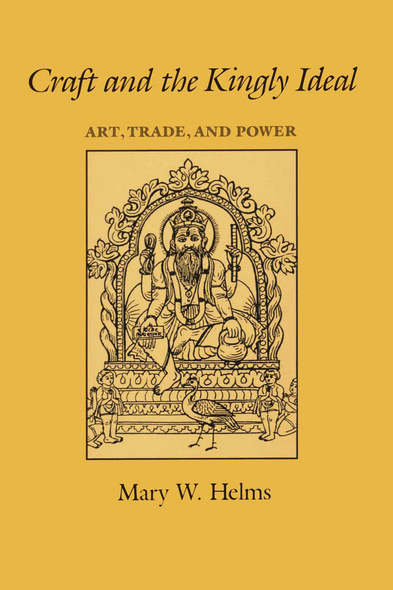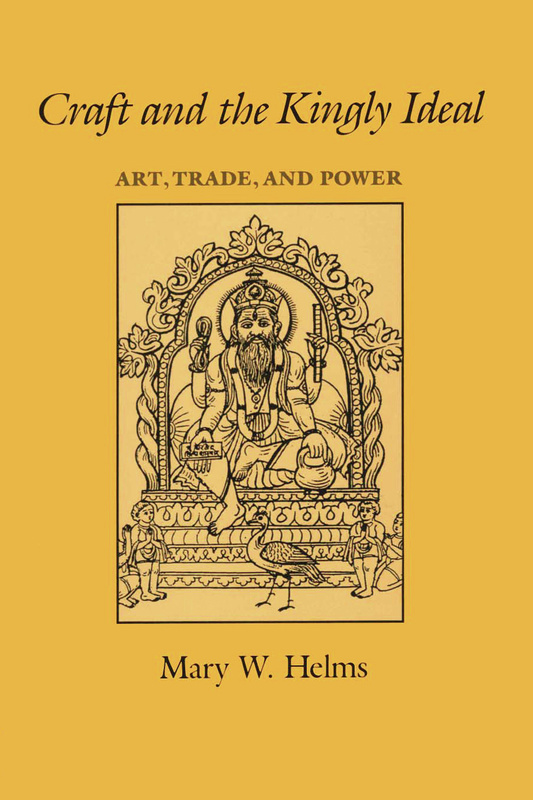In ancient Mediterranean cultures, diamonds were thought to endow their owners with invincibility. In contemporary United States culture, a foreign-made luxury car is believed to give its owner status and prestige. Where do these beliefs come from?
In this study of craft production and long-distance trade in traditional, nonindustrial societies, Mary W. Helms explores the power attributed to objects that either are produced by skilled artisans and/or come from "afar." She argues that fine artisanship and long-distance trade, both of which are more available to powerful elites than to ordinary people, are means of creating or acquiring tangible objects that embody intangible powers and energies from the cosmological realms of gods, ancestors, or heroes. Through the objects, these qualities become available to human society and confer honor and power on their possessors.
Helms’ novel approach equates trade with artistry and emphasizes acquisition rather than distribution. She rejects the classic Western separation between economics and aesthetics and offers a new paradigm for understanding traditional societies that will be of interest to all anthropologists and archaeologists.
Mary W. Helms is Professor of Anthropology at the University of North Carolina at Greensboro.
- Preface
- 1. Introduction to the Problem
- Prelude
- The Activities of Gilgamesh
- Professional Perspectives
- Part I: Skilled Crafting
- 2. What Skilled Crafting Means
- Qualities of Skilled Crafting
- Crafting as Transformation
- Crafting and Creation
- 3. Skilled Artisans in Time and Space
- Artisans and the Ancestors
- Artisans and Geographical Distance
- Travelers, Traders, and Artisans
- Traveling as Skilled Craft
- The Authenticity of Distance
- 4. Qualities of Skilled Artisans
- Flawed Creators or the Epitome of Humanness
- Aesthetics
- 5. Skilled Crafting and Political Authority
- Crafting and Politics in Egalitarian Societies
- Power over Things as Power over People
- The Kingly Craft of Building
- 2. What Skilled Crafting Means
- Part II: Acquisition
- 6. Exchange, Trade, and Acquisition
- Acquisition Defined
- Acquisition Explored
- 7. Acquisition in Time and Space
- Original Travelers and Original Trade
- Craft and the Conduct of Acquisition
- 8. Qualities of Acquisition
- The Flawed and the Ideal
- The Accumulation of Wealth
- Wealth and the Ancestors
- 9. Naturally Endowed Goods and Skillfully Crafted Goods
- The Tangible and the Material
- Hunting
- The Skillfully Crafted vs. the Naturally Endowed
- 10. Acquisition and Political Authority
- Elites and the Outside
- Elites as Acquirers
- Acquisition and Ancestral Conditions
- 6. Exchange, Trade, and Acquisition
- Part III: Centers and Origins
- 11. Superordinate Centers
- Outside Centers and Ancestral Powers
- Superordinate Centers
- 12. Acquisitional Polities
- Characteristics of Centers-Out-There
- The Acquisition of “Civilization”
- 13. Conclusions
- 11. Superordinate Centers
- Notes
- References
- Index





